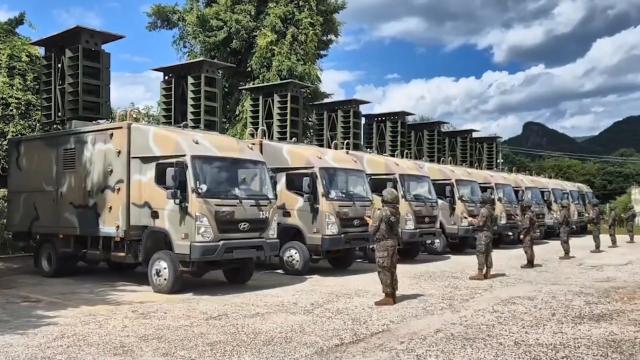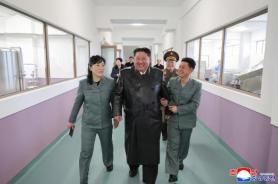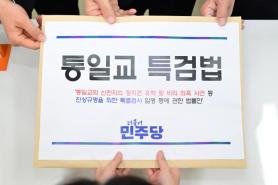
The move follows President Yoon Suk Yeol's vision for reunification between the two Koreas, which he outlined during his Liberation Day speech earlier this month.
Yoon’s vision emphasizes expanding North Koreans' exposure to international information to raise their awareness of the outside world and inspire their rights to free speech.
Currently, South Korea uses loudspeakers in the demilitarized zone (DMZ) to broadcast messages into North Korea, reaching military bases and nearby villages in the border areas.
"The right to access information is a fundamental human right, as stated in the Universal Declaration of Human Rights adopted by the United Nations General Assembly in 1948, which guarantees the freedom to seek information and ideas through various media regardless of borders," said the ministry's spokesperson Kim In-ae.
The ministry explained that while specific support measures are still in the works, the government is committed to promoting freedom and human rights in North Korea by helping its residents access diverse external information.
"The government is dedicated to promoting the universal values of freedom and human rights by helping North Korean residents access more diverse information from the outside world," Kim added.
But the ministry adamantly said that it does not support civic groups that send propaganda balloons with dollar bills and other materials to North Korea.
Copyright ⓒ Aju Press All rights reserved.




